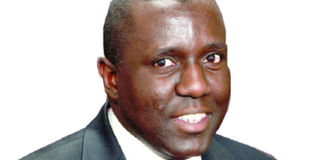Reopening of schools amid Covid is premature

The education sector has been reeling since the forced shutdown of schools in March last year when the first cases of Covid-19 were registered in Uganda.
Government schools and institutions of higher learning have been partially shielded from the scourge because payroll kept coming, but the situation in private schools was worse as many schools (big and small) shed their payroll, leaving teachers without any resort, or assistance.
Scene of the day everywhere in the country is the same - quite humanising. Young children in the village telling you: “We stopped going to school.”
There is a district bursary grantee in my district about to start A-Level after topping the region in Primary Leaving Examinations (PLE) and O-Level, supplying me with fish as he waits for his school to reopen so he can start A-Level.
In December in a big interview on NBS, the Dean of the Makerere School of Public Health, Dr Rhoda Nyenze, mentioned that the worse in Covid-19 was yet to come at about 100,000 fresh cases in the population.
There were a few further cautionary tales by medical practitioners treating chronic illnesses (diabetes, asthma, lung disease, hypertension, etc,) stating that the country should actually have been on a second lockdown with no exceptions.
Covid has shifted from page one of the news, but it has not shifted from people’s lives and hearts. The clergy, political leaders, retired ones, senior citizens.
A close friend of mine came from the UK to bury his parent only to end up in isolation. It is another level when you are having breakfast with folks all to tell you they came down with Covid in the last major spike in November and December.
Government may be facing the political and economic headwinds, especially after the election, but some things must come out clearly.
Uganda does not have hospital bed capacity to handle any major escalation in Covid-19 cases without putting entire segments of the population at risk. It was scandalous enough when during the escalation of Covid, oxygen tanks were delivering just 25 per cent of volumes and medical installations were literally drawing the curtains on very ill patients.
At the frontlines of the fight against Covid like Mulago National Referral Hospital, entire floors are walled off with security tape housing Covid patients. When things really got bad to conserve scarce resources, patients were rotated out of the Women and Children’s Hospital recently reopened to offer life-saving procedures, fertility treatments, antenatal and postnatal care to the main building to create space for even sicker patients.
These rotations could not do much to fight the scourge as graduates from one group simply passed on in the bigger hospital or back in the specialist unit their internal organs ravaged even after they tested negative for Covid.
After Covid, it will be urgent for government to reconsider the four major pillars of a viable healthcare system. First is personnel, recruitment, promotion and remuneration of the same. This will stem the brain drain in the sector and improve doctor per population numbers.
Second is to consider distribution of facilities and equipment all over the country. While the new districts all have Members of Parliament, very few have functioning district hospitals or Healthcare IV Centres with capacity for ambulatory care and admissions.
The situation where families in despair were selling the little they had to treat their loved ones to meet hospital bills cannot continue without creating a major situation. Among Covid’s victims are NSSF, the largest provider as contributions are shrinking due to employers closing up or shedding payroll.
The third pillar is addressing treatment abroad for entitled officers. This is a sensitive topic as the persons who write the Budget actually benefit from this. For the general population, it is important first to treat the mindset.
Uganda’s doctors are among the best trained globally, but have been abused by poor working conditions and deplorable pay, which in turn has attacked the profession in many ways.
Some doctors died of Covid because they could not stop seeing patients even when they developed symptoms. To the schools, let’s wait for the vaccines to arrive to achieve some stability.
Mr Ssemogerere is an Attorney-At-Law and an Advocate.




